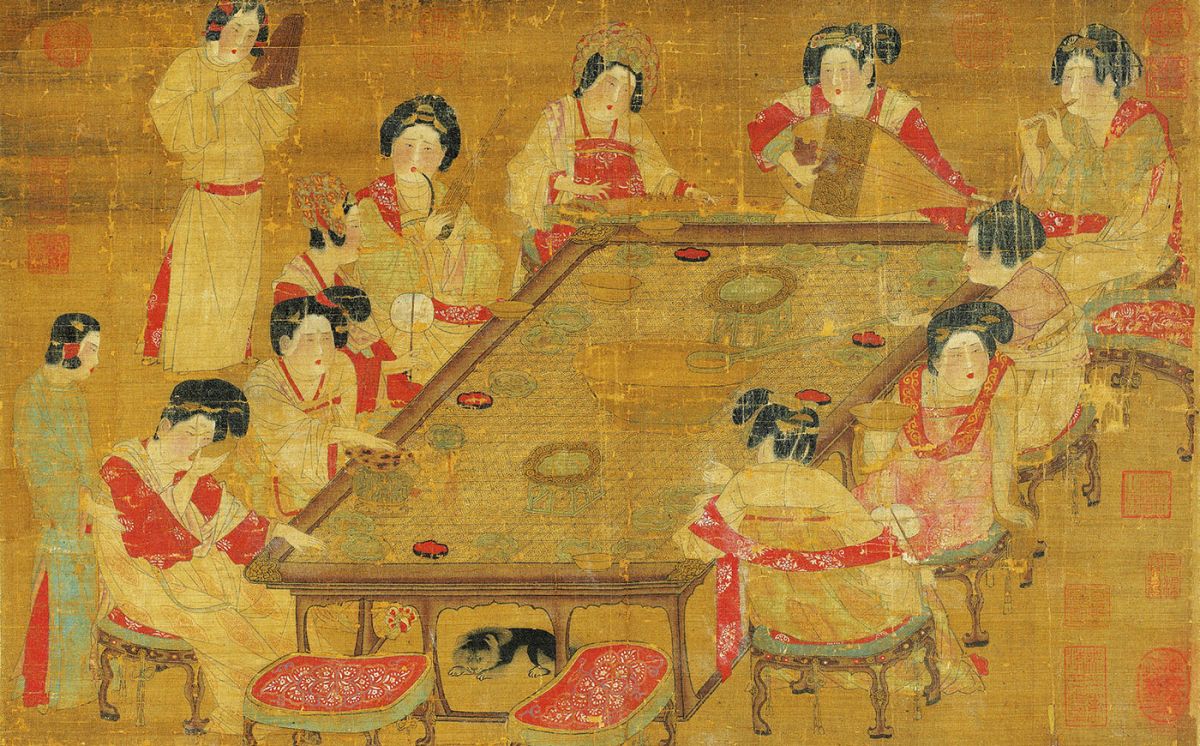Tea production in southern China and its political implications during the Tang and Song Dynasties
<p align=\"left\">Throughout the Tang and Song dynasties (618-1279), the center of China’s economy gradually shifted southwards into the valleys of the Yangtze and Huai Rivers – a region that is now known as ‘southern China’. Moreover, a significant fiscal reform on taxation took place during the mid-Tang era; the government started to collect a tea tax, which gradually became an important source of government revenue. This practice was legitimized in 793 AD through a law imposing a 10 percent tax on tea. Before that, the government only collected land taxes and commodity taxes on textiles. This tax reform was closely related to the expansion of tea plantations, as well as changes in the broader context of economy and politics during the Tang and Song dynasties.</p>
Tea production in China was originally concentrated in Sichuan and Yunnan, and expanded east- and southward to the Yangtze River during the Northern and Southern Dynasties. Up to the Tang, tea plantations had prospered in southern China. Parts of southern China, like the hilly areas in southern Anhui, had already been known for tea production during the Tang dynasty. Historical records show that around 862 AD, 70-80% of the residents in Qimen (祁門) County, Anhui depended on tea cultivation. During the spring harvest season, merchants would flock in to purchase tea with silver or silks, and then sell the tea in other parts of China or abroad. During this time, the once backward hilly areas developed into affluent counties that contributed abundant taxes. Local elites, such as the Zheng Chuan (鄭傳) family, who accumulated enormous wealth from tea trading, founded a militia for self-defense during the turmoil in late Tang.
Later, the Northern Song dynasty re-unified the Central Plains, but was confronted with chronic threats from nomadic regimes in the north. Tea, as a profitable business and means to cover the military expenditure necessary for protection from nomadic groups, became a strategic commodity for the Song government. Thus, the government continued to adjust the tea acts (chafa茶法). It also promoted a government monopoly on tea to maximize fiscal revenue and to control the outbound flow of tea products. As a result, the merchants, who paid a high price for their official tea licenses (yin 引), armed their caravans to protect their tea products. At the same time, the highly lucrative tea business attracted increasing numbers of armed smugglers seeking to counter the government monopoly. Consequently, local militias organized by the tea giants appeared in provinces such as Hubei, Jiangxi, and Anhui. Later, during the north-and-south military confrontation between the Great Jin and the Southern Song dynasty, these local militias played active roles to guard their own properties. When the Yuan dynasty replaced the Song, the government appointed the surrendering militia leaders to rule their own regions. For example, Wang Yunlong (汪雲龍) from Wuyuan (婺源) County, Anhui, was appointed as a local administrator, and his offspring inherited his authority to manage tea taxes in Anhui and Jiangxi.
This historical vignette indicates that tea production and trade advanced the development of the hilly areas in southern China during the Tang and Song dynasties, turning infertile counties into prominent tax contributors. The loose control of the government over these originally barren and backward areas facilitated the growth of local forces in the new prosperous era of tea. However, as the government quickly became aware of the financial and strategic significance of tea, it extended central administration into these areas. Despite the initial interdependence between the central and the local forces, the government eventually absorbed the local forces and gained control over lucrative and strategic tea resources.
Yi Zou is associate professor of the Center for Historical Geographical Studies, Fudan University, China (cnzouyi@126.com). His research interests are Chinese traditional rural society and modern urban development. This research was financially supported by Program of the National Social Science Fund of China (No. 16BZS125).
